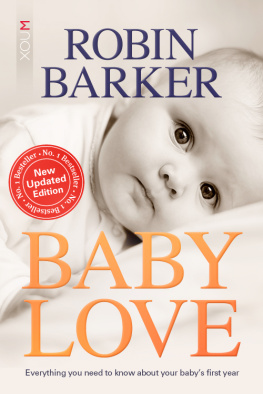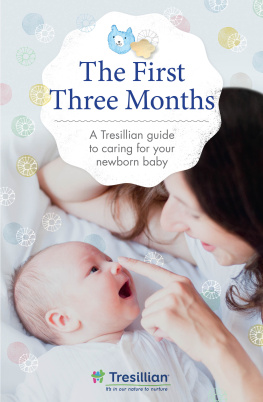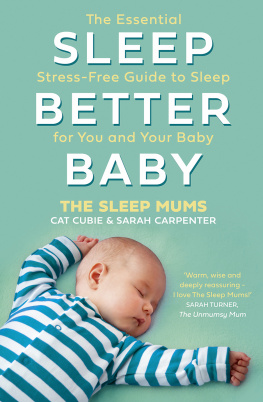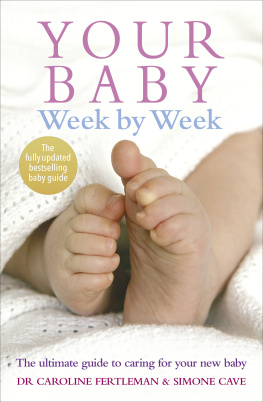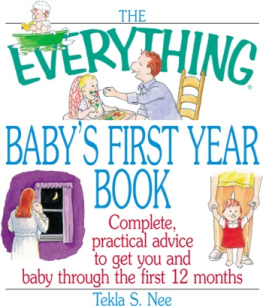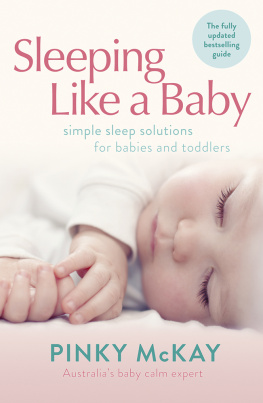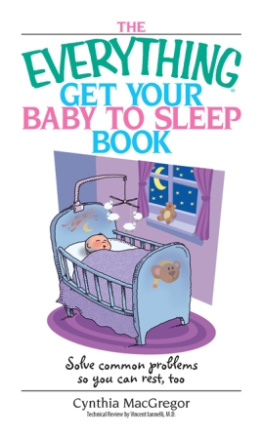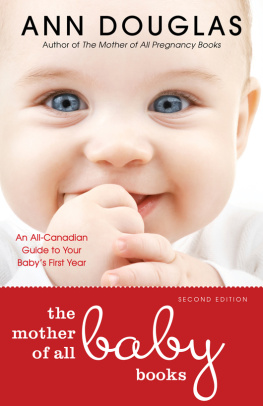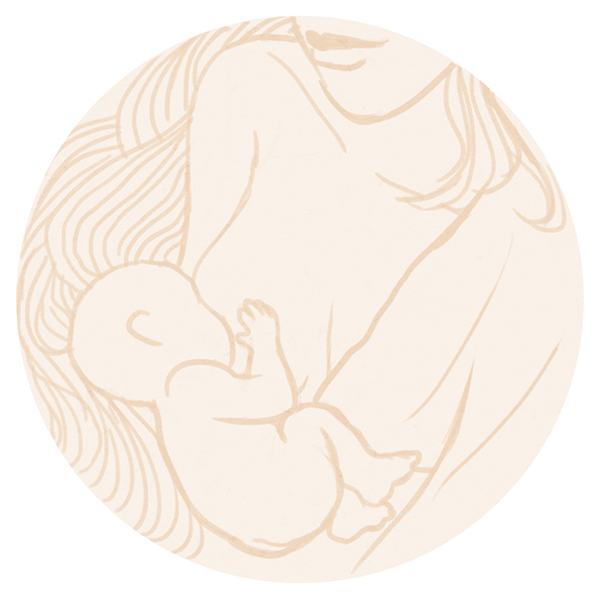All care has been taken to provide accurate, safe information, but it is impossible to cover every situation, so please consult a competent health professional whenever you are in doubt about your babys health or behaviour. A book can never be a substitute for an individual professional consultation. The author and the publisher cannot accept legal responsibility for any problems arising out of the contents of this book.

PO Box 324, QVB Post Office,
NSW 1230, Australia
www.xoum.com.au
This revised digital edition published 2013 by Xoum
Print edition published 1994 by Pan Macmillan Australia
Text copyright Robin Barker 1994, 1997, 2001, 2005, 2009, 2013
Cover and internal design, typesetting and illustrations copyright Xoum 2013
The moral right of the author has been asserted.
All rights reserved. No part of this book may be reproduced or transmitted by any person or entity (including Google, Amazon or similar organisations), in any form or by any means, electronic or mechanical, including photocopying (except under the statutory exceptions provisions of the Australian Copyright Act 1968), recording, scanning or by any information storage and retrieval system, without the prior written permission of the publisher.
ISBN 978-1-92205-746-4
Cataloguing-in-publication data is available from the National Library of Australia
The publisher would like to acknowledge the generous help of the following beta readers: Casey Baldwin, Karen Gaudoin, Letitia Gibbs, Kendall Hore, Claire de Medici, Emma Noble and Ali Orman
Cover design by Xou Creative, www.xou.com.au
Internal design and illustrations by Roy Chen
Word count 180,000
For Babe, Adam, Kate, Kim, Sage and Jimmy
In this book the mother is she, the father is he and the baby is she (for no particular reason).
Introduction
Baby Love is the result of the many years I have spent talking to women about their babies. For twenty-five years my job as a child and family health nurse was to help them by providing the technical knowledge they needed to do the job, as well as to help them sort out the vast range of ideas about babycare that drives modern parents mad.
All parenting information reflects the background, the qualifications and the professional experience of the person providing it. Baby Love reflects mine. Child and family health nursing is a broad rather than specialised practice. The practitioner is there to see and help all-comersmothers who breastfeed and those who wean; parents who wish to co-sleep and those who dont; parents who wish to wear their babies twenty-four hours a day and those who dont; parents who use childcare and those who dont; mothers who wish to breastfeed for years and mothers who wish to wean at twelve months; parents for whom routine is important and parents for whom it is not; parents who found it all easy, parents who found it all difficult, and so on. Then there are the babies. Some sleep well, some dont; some feed well, others are pernickety; some love food, others turn up their noses; some adore tummy-time, others hate it, and so on. The only sane and ethical approach in such a practice was one of providing safe, flexible options to suit the realities of the events and lives of the parents as often as possible. I never saw it as my job to persuade or dissuade parents from following particular child-raising philosophies or methods (unless they were risky or dangerous) especially when in doing so I was likely to further increase their confusion and, sometimes, their distress. Baby Love follows this approach.
Baby Love is not meant to be read from cover to cover like a novel (heaven forbid!). It is structured in the manner in which I worked so it is easy to find the information you need at the time you need it by going to the age-related parts or using the in-built search functions. As it is intended to be a parents working manual, some information is repeated when relevant. References to related subject matter are listed at the end of each chapter to help you find more information on the topic when you need to.
Baby Love contains breastfeeding information that covers the whole of the first year. The information is set in the context of the babys age and development, bearing in mind the extensive range of baby behaviour and the varying lifestyles of women and their families today.
The biggest concerns of parents in the first year after feeding are sleeping, settling and baby crying. Baby Love looks at all these topics in a detailed, structured way providing answers when there are answers and options when there arent. Often just knowing that even the experts dont know and that a particular worry falls into the normal range of baby behaviour is a relief.
Group childcare for the under twos is a dilemma for many families. I think there is ample evidence to suggest that group-style long daycare does not provide the optimum quality of life for most babies and toddlers. It is unfair to those parents who have a choice to keep giving bland reassurances about the childcare options that are available; they need to be fully informed in order to make the best decisions about paid work and non-parental care that is available to them.
I recognise that options for many families are limited as they try to work out how they are going to meet the needs of their children, the economic needs of the family and their own personal needs and it is certainly not my intention to make parents feel guilty. However, it is only by raising everyones awareness that things on the childcare front are far from rosy that governments and employers might seriously start to consider options other than group-style long daycare for employed parents with babies and toddlers.
At the time of preparing this revised digital edition (2013) there is much discussion about government subsidised nannies and a parental leave scheme which pays one parent (usually the mother) her normal salary for her to stay home for the first six months. Improved wages and carer to baby/toddler ratios, as well as mandatory educational requirements for all childcare workers, have increased the costs of care for parents.
After years of talking to parents I know that most people approach parenthood seriously and professionally and count on the health professionals they seek advice from to provide them with accurate, practical, safe information suited to their baby and their lifestyle. Baby Love is written with this in mind as the start of your babys life unfolds.
1
Preparing for Parenthood
Babycare information is everywhere. Around the globe there are thousands of books that cover the same information as

